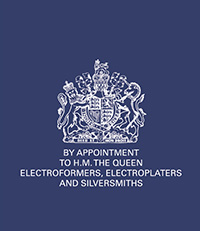
Modern Slavery & Human Trafficking Statement
Copyright © BJS Company Ltd 2019
This Statement describes the activities of BJS Company Ltd to eliminate slavery and human trafficking from its business and supply chains and to ensure that the company complies with the UK Modern Slavery Act 2015.
Overview
BJS recognizes that our impact extends far beyond our own walls. To maximize our positive impact on our shared world, we are committed to fostering responsibility across our value chain, through the impact of our products, as well as via our global supplier network.
The Company is a global manufacturer of a diversified range of industrial products and equipment. The BJS culture is one of the key drivers of our enterprise strategy and encompasses our core values of integrity, respect, trust, shared risk and simplicity. Our core values, communicated throughout the Company, call for the highest ethical standards in all interactions with all stakeholders.
We have prepared this Statement on a combined basis to comply with the UK Modern Slavery Act 2015 and for our entire company, because our Core Values, Statement of Principles of Conduct, Supplier Code of Conduct, Supplier Expectations and Conflict Minerals Policy Statement, together provide the over-arching compliance framework relating to slavery and human trafficking across our entire enterprise.
We believe that the risks of slavery and human trafficking in our own businesses are remote given the nature of our businesses and workforce coupled with our internal policies and procedures. Where we have identified risks inherent in suppliers, as further discussed below, we have established procedures to mitigate the risks of slavery and human trafficking in our supply chains for products from those suppliers.
Where practicable, we seek to maintain long-term relationships with local suppliers, to help us source more responsibly and reduce the risk of sourcing from an unethical supplier.
Codes of Conduct
The BJS Statement of Principles of Conduct mandates compliance with human rights requirements around the globe, including environmental, health and safety laws that protect the well-being of employees, and laws against slavery, human trafficking and child labour. The BJS Statement of Principles of Conduct applies to all of our employees and internal business operations.
In addition, BJS has a Supplier Code of Conduct that holds our suppliers accountable to the same standards of conduct set forth in our Statement of Principles of Conduct; it specifically prohibits our suppliers from employing workers that are younger than minimum age or from knowingly sourcing from suppliers associated with human trafficking. The Supplier Code of Conduct also requires our suppliers to take reasonable efforts to ensure that their suppliers comply with our policies. We expect our suppliers to be in compliance with the Supplier Code of Conduct, and we do not knowingly do business with suppliers who violate laws for the protection of human rights or human health and safety.
We expect suppliers to comply with all applicable laws and regulations around the globe, including those pertaining to human rights and laws against slavery, human trafficking and child labor.
Steps to Mitigate Slavery and Human Trafficking Risk
We engage in the activities discussed below to mitigate the risk of slavery and human trafficking in our supply chains.
We accept responsibility for verifying, evaluating and addressing risks of slavery and human trafficking in our supply chains, based on our particular business and risk profile. We do not take a prescriptive approach to this area of compliance as we believe that we must enable individuals within the company to take a thoughtful, tailored approach to addressing slavery and human trafficking risk and to operate in accordance with our Core Values, the BJS Statement of Principles of Conduct, the Supplier Code of Conduct, our Supplier Expectations and other BJS policies and expectations.
Supplier and Risk Assessments; Supply Chain Verification. Our business evaluates prospective suppliers during supplier selection and periodically thereafter based on their business and risk profile and role in our supply chain. The evaluation may include steps to assess risks of slavery and human trafficking. The steps taken to assess slavery and human trafficking risk typically include a request that suppliers complete a supplier questionnaire detailing supplier capabilities and requesting other information relative to overall management of the supplier company.
BJS also conducts supplier outreach in connection with our conflict minerals country of origin inquiries, conducts internal research relating to slavery and human trafficking risk using government and NGO resources, and may participate in industry groups and engagement with other stakeholders. As part of our supplier risk assessment process, we also use a proprietary supply chain risk checklist for suppliers that guides us in identifying those suppliers with the highest risks of slavery and human trafficking. In addition, as discussed below, we require certifications from the highest risk suppliers.
Audits. Prior to placing business with a supplier, an onsite supplier visit may be made by BJS personnel for purposes of confirming supplier overall capabilities and assessing overall supplier risk. Additionally, after business has commenced with a supplier, onsite supplier visits may be performed periodically by BJS personnel. Although the specific purpose of onsite visits is not typically to assess slavery and human trafficking risk, compliance with Company standards for slavery and human trafficking in supply chains would be covered within overall supplier assessment, and we believe that onsite supplier visits by BJS personnel discourage abusive working conditions.
Contract Terms. Certain of our standard Terms and Conditions of Purchase provide that direct suppliers must comply with all applicable laws against slavery, human trafficking and child labour. Terms and Conditions of Purchase also require direct suppliers to comply with our Supplier Code of Conduct.
Supplier Certifications. We evaluate our purchased products against the List of Goods Produced by Child Labour or Forced Labour for likely countries and industries prone to modern slavery to help identify any high-risk suppliers BJS may utilize.
We will not use or buy from any company that is identified as a high- risk supplier. In addition, we require substantial suppliers who sell us product that contains so-called “conflict minerals” to certify as to mineral origin to determine whether such minerals may be supporting conflict in central Africa. These certifications are in part intended to help identify and mitigate the risk of slavery, human trafficking, child labour and other human rights violations.
Training and Knowledge Management.
Our sourcing personnel are trained in overall supplier expectations, including the requirement to act ethically and according to our Supplier Code of Conduct. Our buying staff are aware of modern slavery and knowledge of examples of best practices, particularly with respect to mitigating risks within our product supply chains, and to enable our buyers to better recognize the signs of slavery and human trafficking and act to remove any suppliers found to be engaging in these activities.
Employee Certifications.
Employees are periodically required to certify to their compliance with the BJS Statement of Principles of Conduct.
For more information on our approach to corporate social responsibility, see our Corporate Social Responsibility Policy, which is available at https://bjsco.com/corporate-social-responsibility/
This Statement has been approved by the BJS Company Ltd Board of Directors and signed by a director.
Richard Lewis
Chief Executive Officer


